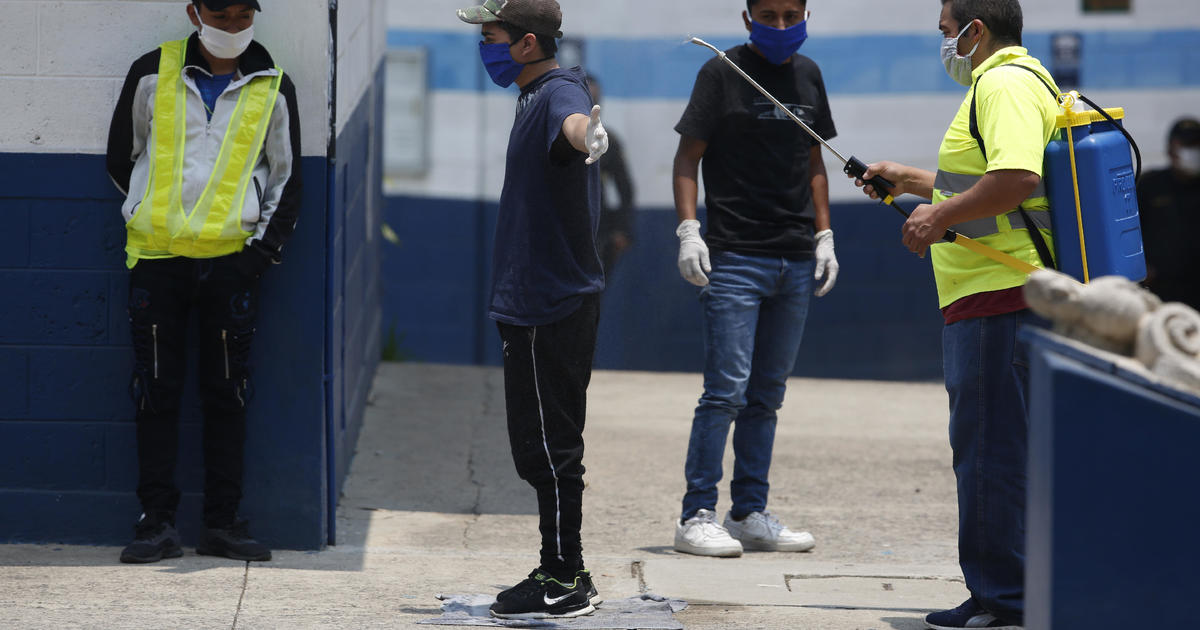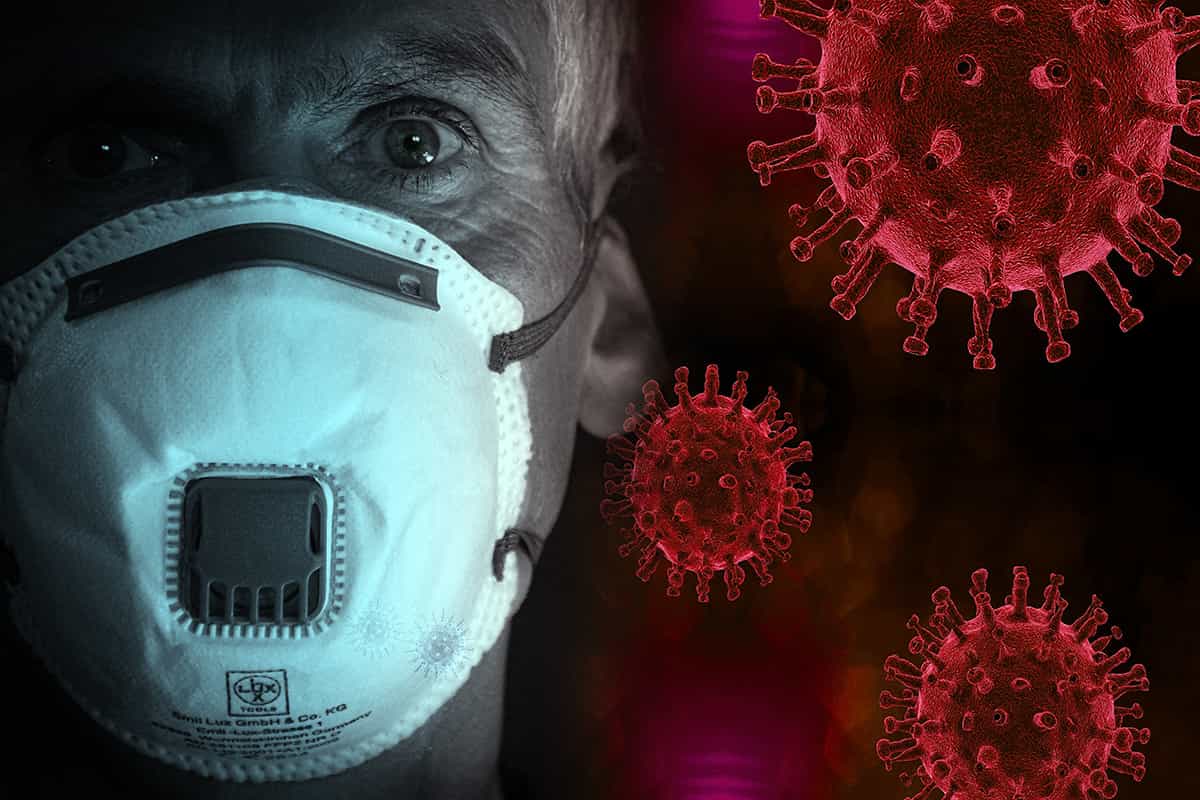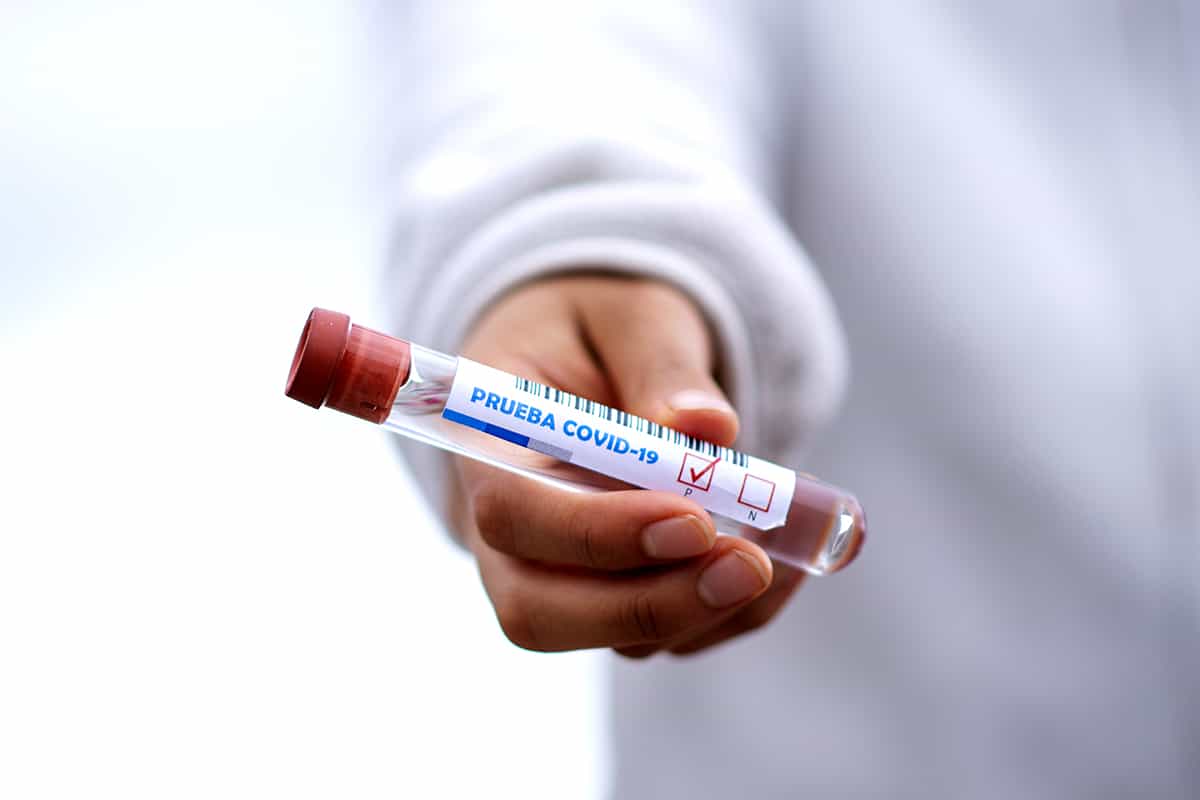When it unveiled an unprecedented order last month to swiftly expel virtually all unauthorized migrants from the U.S. southern border, the Trump administration said potentially infected foreigners could spread the coronavirus in the U.S., prompt outbreaks in immigration jails and strain public health resources along border communities.
But in a paradoxical twist, Guatemala, the largest source of migration to the U.S.-Mexico border in recent years, fears the U.S. is exporting the virus there through deportation flights.
At least 99 migrants recently deported to Guatemala by the U.S. have tested positive for coronavirus as of Sunday, according to the nation’s public health ministry. Deportees from the U.S. make up nearly 20% of the 500 coronavirus cases in Guatemala, which has had 15 pandemic-related deaths.
“I do believe that the U.S. is exporting the virus,” California Representative Norma Torres, the sole Central American in Congress and an immigrant from Guatemala, told CBS News.
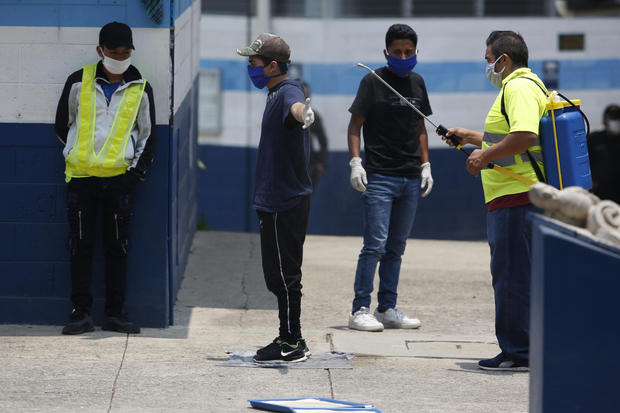
Moises Castillo / AP
The cases among deported migrants have alarmed the public in Guatemala and its U.S.-aligned government, which indefinitely suspended deportation flights from the U.S. earlier this month. Guatemala’s government, which has allowed two “humanitarian” flights in the past two weeks to receive repatriated children and families, has said it will only permit the resumption of regular deportation flights once the U.S. improves its screening protocols.
Experts and advocates warn that continued deportations from the U.S., the global epicenter of the pandemic, would pose a major threat to Guatemala, a developing country with rampant economic and public health inequities that has relatively few coronavirus cases. As of Sunday, the U.S. reported nearly 1 million confirmed cases and almost 55,000 coronavirus-related deaths — by far the most of any country in both instances.
“It could be a huge, almost insurmountable problem,” Anthony Fontes, a professor at American University who specializes in Central America and migration from the region, told CBS News. “Guatemala is one of the poorest countries in the hemisphere. It has an extremely unequal society in which most of the wealth is concentrated in the top one percent, even more than in the U.S.”
Torres, the California congresswoman, said the countries in Central America’s “Northern Triangle,” where the bulk of U.S.-bound migration originates, don’t have the health care systems to combat large outbreaks inside their borders. “They don’t have the number of the test kits available to even understand what has already been brought and exported to their countries,” she added.
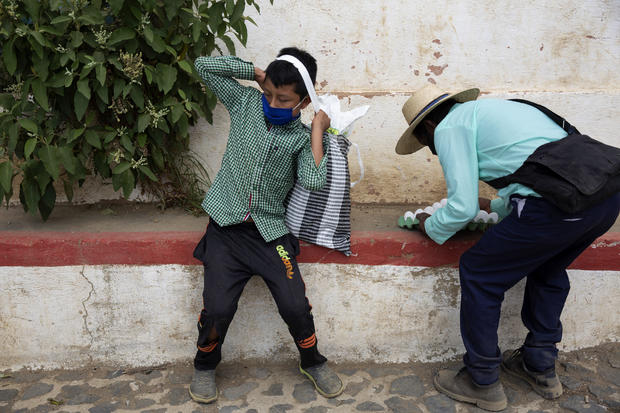
Moises Castillo / AP
Fontes, who is in central Guatemala conducting research on the pandemic’s impact on migration patterns in the region, said another concern for the country is deportations by land from Mexico, which have continued despite the freeze on repatriation flights. In addition to rapidly deporting migrants to their home countries under the public health order, U.S. officials at the southern border have been expelling Guatemalans and other Central Americans to Mexico. As of last week, 9,745 Guatemalan migrants have been deported through Mexico this year, including 780 this month, according to Guatemala’s migration agency.
Fontes said the continued influx of buses from Mexico carrying Guatemalan migrants who journeyed to the U.S. could hinder the country’s sweeping measures to contain the pandemic. “Efforts to suppress movement and the spread of the virus just won’t work when you have literally deportees coming through like a leaking ship,” he observed.
Guatemala isn’t the only country that has reported coronavirus cases among people deported by the U.S. At least three deportees in Haiti, the poorest country in the Western Hemisphere, have tested positive, according to Reuters.
In response to those concerns, U.S. Immigration and Customs Enforcement, or ICE, the agency in charge of repatriating people, announced earlier this month the deployment of a team from the Centers for Disease Control and Prevention, or CDC, to Guatemala to “review” and “validate” coronavirus tests conducted by Guatemalan health officials on deportees.
Coronavirus cases among the more than 30,000 immigrants in ICE custody surged last week, reaching 317 on Friday. At least 35 ICE employees at detention centers have also tested positive for the virus, according to the agency’s latest tally. As of early last week, officials had tested 425 detainees.
On Friday, ICE pledged to use 2,000 test kits the agency said it will be receiving from the Department of Health and Human Services every month to screen some migrants for the virus before deporting them. An ICE spokesperson said the logistics on testing are being worked out. Citing nationwide shortages, the spokesperson acknowledged the agency likely won’t have enough test kits to screen all detainees slated to be deported, but said officials will prioritize based on “evolving operational considerations.”
“The health and safety of migrants in our care and custody is of the highest priority,” the ICE spokesperson said in a statement, adding that the U.S. Department of Homeland Security “is committed to working with State Department partners and foreign governments to ensure that their citizens can return home in a safe manner that takes into account the unique challenges the COVID-19 pandemic presents to public health.”
In January and February, ICE deported more than 4,000 migrants to Guatemala each month, according to figures provided by the Guatemalan migration agency. In March, when U.S. officials started rapidly expelling unauthorized border-crossers under the public health order, the agency deported more than 2,900 people to Guatemala. In the first two weeks of April, before deportation flights were suspended, ICE deported more than 600 migrants.
The agency typically makes thousands of additional deportations monthly to other countries, like Honduras and El Salvador, which haven’t suspended ICE flights. A spokesman for Honduras’ migration agency said deportees are being quarantined and monitored by health officials.
Fontes, the immigration expert, said the 2,000 monthly test kits will be insufficient to ensure U.S. deportation flights aren’t exporting the coronavirus, likening the measure to “putting lipstick on a pig.” The announcement to test some would-be deportees, however, could serve as domestic “political cover” for the Guatemalan government to stop its freeze on deportation flights, Fontes added.
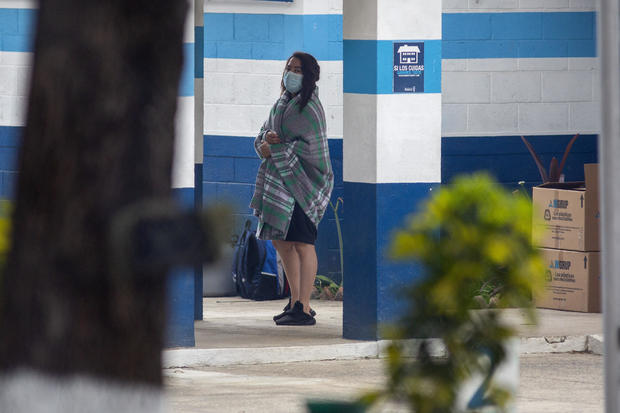
Moises Castillo / AP
“The height of hypocrisy”
How long the Guatemalan government will be able to maintain its halt on deportation flights from the U.S. hinges on Washington’s willingness to use the economic and political leverage it has over the Central American country, Fontes said. President Trump has already directed the State Department to deny visas to nationals of countries that deny or “unreasonably” delay the repatriation of their citizens during the pandemic.
Earlier this month, the State Department announced it would resume foreign aid to El Salvador, Honduras and Guatemala, which Mr. Trump suspended last spring, when he faulted the governments there for what he said were insufficient measures to curb an unprecedented migration wave of families from the region. The aid was restored, the State Department said, because the countries agreed to tighten their borders and sign agreements that let the U.S. re-route asylum-seekers to the region. Guatemala was the first to sign this accord last summer after being threatened with tariffs, a tax on remittances and a travel ban.
Last week, the U.S. announced it would be sending ventilators to El Salvador and Honduras. Asked if Guatemala was left out because of its freeze on deportations flights, Assistant Secretary of State Michael Kozak said he didn’t know if the Guatemalan president had asked for them. “It’s not that we haven’t had a cooperative relationship with them, it’s just they’ve run into some snags and we’re working through that with them,” Kozak said, according to a transcript of a briefing with reporters. “But anyway, I think, as you’ve seen, there isn’t some hard linkage here between cooperation on removals and ventilators.”
“Guatemala is certainly in its rights to do this, but it’s really about the pressure that Trump is willing to put on the Guatemalan government,” Fontes said. “Will it come down to a choice of accepting aid or accepting deportees?”
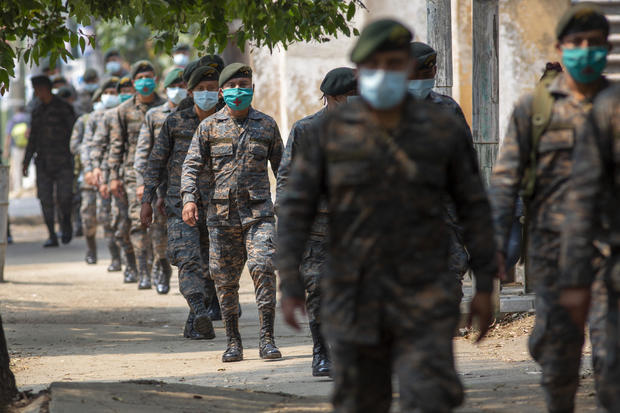
Moises Castillo / AP
Fontes said a pressure campaign by the U.S. to persuade Guatemala to accept deportation flights would be the latest episode in a decades-long pattern of uneven, heavy-handed American foreign policy tactics in the region that date back to the early 20th century and the Cold War. “U.S. intervention in this area of this type — efforts to contain communism, contain immigration, whatever it is — inevitably makes the problem worse,” he said. “This place really is a tinderbox because of the severe inequality.”
Instead of continuing the strategy, the U.S. should implement a temporary moratorium on deportations to Guatemala so the country can keep the pandemic at bay, Fontes said.
Instituting strict border restrictions due to the pandemic while continuing deportation flights carrying potentially infected migrants is “the height of hypocrisy,” he remarked.




